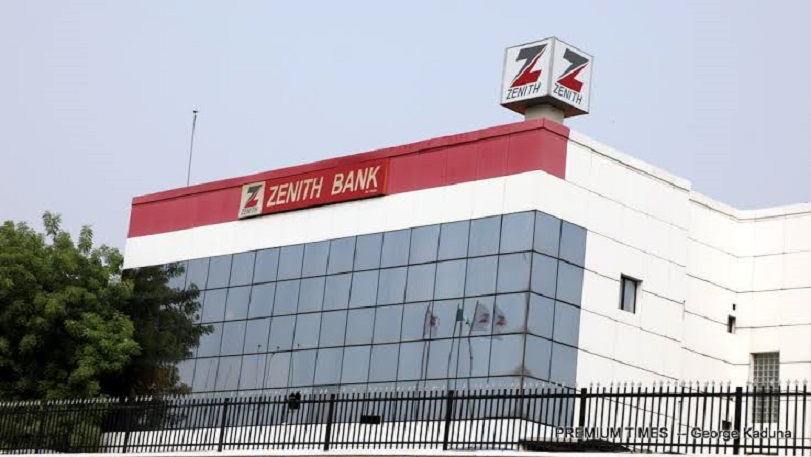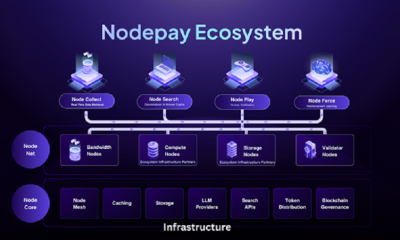Economy
Make Your Trading More Profitable by Using the Best Copy Trading Brokers

Copy trading, a popular trend in Forex, enables traders to mirror the strategies of successful peers and improve their trading outcomes. Modern copy trading platforms provide accessible options for experienced and new traders alike. Traders Union experts explored the top platforms, considering features, usability, costs, and regulations.
What is copy trading?
Copy trading allows individuals to imitate the trades made by successful investors, known as “Master Traders” or “Signal Providers.” While it can lead to profits, it’s important to be aware that losses can also be replicated. TU experts underline that copiers must monitor the signal providers’ performance. Key participants in copy trading are the Provider (trader whose trades are copied), the Copier (individual replicating the trades), and the Broker (platform facilitating the connection).
Top copy trading Forex platforms
Choose wisely from the best copy trading brokers to optimize your trading experience.
- RoboForex CopyFx: Investor-friendly platform for copying professional traders’ strategies with transparent control and convenient tools. Offers an all-in-one trading account.
- IC Markets Copy Trading: Connects users to ZuluTrade for duplicating successful traders’ positions. Fast and easy connection with top brokers, including a dedicated crypto copy trading area.
- eToro CopyTrader: Multi-asset investment platform with comprehensive tools for impressive copy-trading. User-friendly interface, innovative trading tools, and diversified investments through CopyPortfolios.
- Tickmill Copy Trading: Partners with MyFxBook for copy trading services. High entry threshold, but licensed by respected regulators for safety and regulation.
- AvaTrade Copy Trading: Leading platform offering social and copy trading services. User-friendly mobile social trading platform, collaboration with top copy trading providers, and access to thousands of signal providers and investors.
- Pepperstone Copy Trading: Prominent copy trading platform with access to renowned platforms like MyFxBook, MQL5, and DupliTrade. Extensive selection of markets and strategy providers, but requires a minimum investment of $1000.
- FXTM Copy Trading: Beginner-friendly platform with a low minimum investment of $100. Offers convenient deposit and withdrawal options, access to over 250 instruments, and is regulated by reputable authorities.
Is copy trading easy?
Analysts at Traders Union assured that copy trading offers a simple and user-friendly way to benefit from the expertise of experienced traders while retaining control over one’s own decisions. It eliminates the need for in-depth market analysis and is suitable for beginners. However, it does not guarantee profits, so monitoring signal providers and customizing the portfolio based on risk tolerance and goals is essential for successful copy trading. This level of flexibility empowers individuals to optimize their copy trading experience and achieve favorable results.
How to copy trade successfully?
Traders Union analysts provided tips for successful copy trading.
- Choose a reputable copy trading platform that aligns with your goals.
- Determine your initial investment amount, starting small and gradually increasing as you gain confidence.
- Observe and evaluate different traders’ performance on the platform before selecting whom to follow.
This guide will help you begin a successful copy trading journey, diversify your portfolio, and create potential profits.
Benefits of copy trading
TU analysts determined the main advantages:
- Accessible adaptability: Copiers can adjust trading parameters to suit their preferences and risk tolerance, aligning trades with their financial situation.
- Time-efficient trading: It provides an efficient solution for busy individuals with limited time, as they can follow successful traders without extensive research.
- Transparent insights: Leaderboards and performance rankings offer transparency on providers’ track records, aiding informed decision-making.
- Portfolio diversification: Copiers can select traders with different styles or market focuses to diversify their investments and mitigate risks.
- Learning opportunities: It serves as a valuable learning experience for new or improving traders, observing and analyzing successful providers’ strategies for market insights.
Conclusion
Сopy trading has emerged as a popular trend in Forex, offering traders the opportunity to mirror successful strategies and improve their trading outcomes. The top copy trading platforms mentioned provide accessible options for traders of all levels of experience.
Economy
Terrahaptix Secures Additional $22m from Investors, Valuation Hits $100m

By Adedapo Adesanya
Nigerian defence technology startup, Terra Industries, has extended its funding round to $34 million after securing an additional $22 million from investors, making it a $100 million company.
The new capital round was led by venture firm Lux Capital, with injections from the chief executive officer of Lagos-based unicorn Flutterwave, Mr Gbenga Agboola, as well as angel investors such as American actor Jared Leto and Jordan Nel.
The company said in a statement on Monday that the round was completed in under two weeks.
This comes weeks after it raised $11.75 million in January. That funding round was led by 8VC founded by the co-founder of Palantir Technologies Inc., Mr Joe Lonsdale. Other investors included Valor Equity Partners, Lux Capital, SV Angel, Leblon Capital GmbH, Silent Ventures LLC, Nova Global and angel investors, including Mr Meyer Malka — the managing partner of Ribbit Capital.
Some of the investors in the new round included 8VC, Nova Global, Silent Ventures, Belief Capital, Tofino Capital, and Resilience17 Capital, founded by Flutterwave CEO.
Terrahaptix, founded by Mr Nathan Nwachukwu and Mr Maxwell Maduka, will use the new funding to expand Terra’s manufacturing capacity as it expands into cross-border security and counter-terrorism.
The extension also comes amid growing international expansion. Earlier this month, Terra announced a partnership with Saudi industrial giant AIC Steel to launch a manufacturing hub in Saudi Arabia focused on producing infrastructure security systems.
In the coming weeks, the company also plans to unveil a mega factory, an indication of the company’s growth and importance, particularly as the need for security has risen in recent years, as groups such as Islamic State and al-Qaeda are gaining ground in Africa, converging along a swathe of territory that stretches from Mali to Nigeria.
According to Mr Nwachuku, the initial $11.75 million raise created significant momentum for the company, enabling it to close the additional $22 million in just under two weeks.
He added that beyond capital, the investors were selected for their experience building similar hard-tech and defence-focused companies.
Economy
Analysts Predict 18% Inflation Rate for January 2026

By Adedapo Adesanya
Analysts have projected that Nigeria’s headline inflation could rise to about 18 per cent in January, defying the downward trend recorded in 2025.
The forecast comes ahead of the first Consumer Price Index (CPI) data release by the National Bureau of Statistics (NBS) of 2026 due on Monday.
Headline inflation closed December at 15.15 per cent year-on-year, while the annual average eased sharply to 23.33 per cent from 33.18 per cent in 2024.
According to analysts at Cowry Research, the recent CPI normalisation has created a lower base for January comparisons, making a temporary uptick in headline inflation likely in January and possibly February. It projects inflation to trend within the 17.8 per cent to 18.7 per cent range in 2026, driven by election-related spending pressures and fading base effects, even as structural reforms support a medium-term disinflation path.
Similarly, analysts at Quest Merchant Bank said the lower base effect could push January inflation to around 18 per cent to 19 per cent. They, however, expect inflation to resume a broadly disinflationary trajectory over the course of the year, supported by softer energy prices, stable exchange rate conditions and easing food costs.
Last year’s deceleration was driven largely by base effects after the stats office normalised its CPI computation methodology. Unlike previous rebasing exercises that used a single month as the base period, the agency calculated the base using the average of all months in 2024. The rebasing also involved reweighting several categories and expanding the inflation basket to 934 items from 740.
In December alone, the NBS published two separate inflation figures for December after the CPI methodology tweaking caused the headline rate to more than double.
Nigeria’s inflation data are closely monitored by the Central Bank of Nigeria (CBN) as it transitions toward an inflation-targeting monetary policy framework.
The CBN has already factored in the CPI rebasing and related computational issues in its three-year inflation forecast.
The apex bank is targeting a slowdown in inflation to around 13 per cent by next year, despite current price pressures and statistical adjustments.
The Monetary Policy Committee (MPC) will meet next week, and today’s inflation report will form the basis for whether there will be a cut or hold in the interest rates.
Economy
Deap Capital, Access Holdings, Zenith Bank Lead Activity Chart

By Dipo Olowookere
The trio of Deap Capital Management & Trust, Access Holdings, and Zenith Bank led the activity chart of the Nigerian Exchange (NGX) Limited last week.
In the five-day trading week, Customs Street posted a total turnover of 4.652 billion shares worth N193.326 billion in 286,751 deals compared with the 3.860 billion shares valued at N128.581 billion traded in 240,463 deals a week earlier.
According to data, financial services equities dominated the activity chart with 2.782 billion units sold for N74.063 billion in 104,325 deals, contributing 59.81 per cent and 38.31 per cent to the total trading volume and value, respectively.
Services stocks recorded the sale of 573.189 million units worth N7.177 billion in 28,784 deals, and consumer goods shares exchanged 317.667 million units valued at N24.027 billion in 33,280 deals.
Deap Capital, Access Holdings, and Zenith Bank accounted for 980.253 million shares worth N30.182 billion in 25,390 deals, contributing 21.07 per cent and 15.61 per cent to the total trading volume and value apiece.
Business Post reports that 79 equities appreciated versus 71 equities in the previous week, as 27 stocks depreciated versus 35 stocks in the previous week, while 42 shares closed flat, the same as the previous week.
Zichis was the best-performing stock after it gained 60.71 per cent to trade at N10.80, Union Dicon appreciated by 60.15 per cent to N20.90, DAAR Communications grew by 55.26 per cent to N2.95, Fortis Global Insurance rose by 50.00 per cent to 39 Kobo, and John Holt grew by 45.21 per cent to N10.60.
On the flip side, Abbey Mortgage Bank lost 26.42 per cent to quote at N11.00, Sovereign Trust Insurance shrank by 17.16 per cent to N2.80, Ecobank declined by 13.29 per cent to N45.00, SAHCO went down by 11.59 per cent to N135.00, and Austin Laz depleted by 11.11 per cent to N4.80.
Last week, the All-Share Index (ASI) and the market capitalisation appreciated by 6.16 per cent to 182,313.08 points and N117.027 trillion, respectively.
In the same vein, all other indices finished higher with the exception of the sovereign bond index, which fell by 0.01 per cent.
-

 Feature/OPED6 years ago
Feature/OPED6 years agoDavos was Different this year
-
Travel/Tourism10 years ago
Lagos Seals Western Lodge Hotel In Ikorodu
-

 Showbiz3 years ago
Showbiz3 years agoEstranged Lover Releases Videos of Empress Njamah Bathing
-

 Banking8 years ago
Banking8 years agoSort Codes of GTBank Branches in Nigeria
-

 Economy3 years ago
Economy3 years agoSubsidy Removal: CNG at N130 Per Litre Cheaper Than Petrol—IPMAN
-

 Banking3 years ago
Banking3 years agoSort Codes of UBA Branches in Nigeria
-

 Banking3 years ago
Banking3 years agoFirst Bank Announces Planned Downtime
-

 Sports3 years ago
Sports3 years agoHighest Paid Nigerian Footballer – How Much Do Nigerian Footballers Earn


















